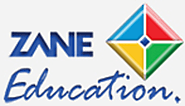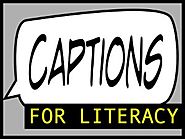-
About
- About Listly
- Community & Support
- Howto
- Chrome Extension
- Bookmarklet
- WordPress Plugin
- Listly Premium
- Privacy
- Terms
- DMCA Copyright
- © 2010-2025 Boomy Labs

 Tom DAmico
Tom DAmico
Listly by Tom DAmico
The use of captions or closed captions is a literacy strategy that is made possible by leveraging technology. Why not turn on captions when showing a video in class? Here are a few resources and research to get you started with this strategy.

Learn about what captions are, their benefits for all students, how to tell if a video is captioned and how to turn on captions across media types.

A worldwide study conducted in 1991 of 9-year-olds found that Finnish children were the most proficient readers. However this was far from being an isolated situation because Finland has repetitively been rated in the leading position amongst all OECD countries, for its level of reading and literacy skills.

There has been so much successful research into the many benefits and uses of subtitles and captions on video and Television that the American government has recognized the need for subtitles and captioning, and important laws have been passed which mandate its availability.

Many accessibility efforts to make information more accessible to users with disabilities provide benefits to all users. Calling out these benefits can lead to a decision for accessibility in spite of the benefits provided to users with disabilities.

In a typical classroom, a teacher may find many students who are struggling readers, whether they are beginning readers, students with language-based learning disabilities, or English Language Learners (ELLs). One motivating, engaging, and inexpensive way to help build the foundational reading skills of students is through the use of closed-captioned and subtitled television shows and movies.

We've compiled some links to sources of captioned videos and organizations who are also promoting the use of captioning or same-language subtitles for improving literacy. If you know of others, please let us know! Educational Videos Described & Captioned Media Program: Free library of captioned and described media aligned with the US Common Core State Standards.

Captions can provide struggling readers with additional print exposure, improving foundational reading skills. In a typical classroom, a teacher may find many students who are struggling readers, whether they are beginning readers, students with language-based learning disabilities, or English language learners (ELLs).

Teaching and learning in the 21st Century - meeting the challenges of digital learning and the iGeneration
